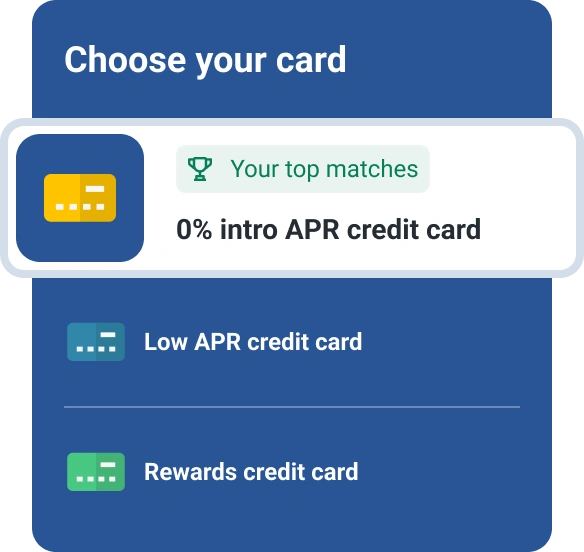Will Carrying a Balance on a Credit Card Help My Credit Score?

A persistent myth about improving credit scores is the notion that maintaining a monthly credit card balance helps your score more than paying off your balance in full. That's untrue. What's more, carrying balances on your credit card accounts typically costs you money in the form of interest charges, and under certain circumstances it could even hurt your credit score. Read on to learn why.
How Carrying a Balance Affects Your Credit Score
Borrowers with relatively low levels of debt post less risk in the eyes of lenders, and credit scoring systems created by FICO® and VantageScore® reflect that: They don't treat all unpaid balances as negative, but they don't necessarily assign higher scores for maintaining balances. Using your credit cards regularly while maintaining low balances (or zero balances) tends to promote higher credit scores.
Outstanding balances on credit cards can even hurt your credit score, and this effect is most drastic once balances exceed about 30% of a card's borrowing limit. Those with the highest credit scores tend to keep credit utilization below 10%. Maintaining a zero balance by paying off all purchases in full each month is the best of all.
This habit is particularly beneficial with regard to the latest versions of the FICO® ScoreΘ and VantageScore credit scoring systems, which can take advantage of "trended data" compiled by the national credit bureaus. With trended data, scoring systems can look for patterns in individuals' payment habits, and borrowers who routinely pay their card balances in full may tend to see higher scores than those who make only monthly minimum payments.
Pay Your Credit Card Balance in Full
Paying your credit card balance in its entirety each month is a great habit to adopt. Doing so has multiple benefits:
- Avoid interest charges. First and foremost, paying off your credit cards saves you money that would otherwise go toward paying interest on their balances. Credit card issuers charge interest on the balance that remains unpaid after each month's billing cycle—the balance you "carry forward" to the next billing period. If you pay your balance in full, no balance carries forward, and you avoid interest charges. (If you use a card with a 0% introductory interest rate, you can carry a balance without paying interest—but whatever balance that remains when the introductory period ends will be subject to interest charges.)
- Reduce your credit utilization. Bringing the balances on all your credit cards down to zero each month can help keep your credit utilization ratio—the percentage of your total borrowing limit you're using on your credit cards—low and manageable. Utilization rate is a major factor in determining credit score for both the FICO® Score and VantageScore systems. If you find yourself regularly exceeding 30% of your borrowing limit, consider using a card with a higher limit (or getting one, if you don't have one), or ask your lender to raise the limit on your card.
- Prevent ballooning credit card debt. Paying your bills in full every month is the single best habit you can cultivate to make sure your credit card debt doesn't spiral out of control. Don't make a purchase with your credit card unless you have a plan to pay it off.
What to Do if You Need to Carry a Balance
It's all but inevitable that eventually you'll use a credit card for an expense that you can't pay off in a single month. After all, one reason for having a credit card in the first place is to enable big purchases you can't cover with a single cash payment. When you do so, you pay for the convenience in the form of interest charges to your card issuer. The amount you'll pay depends, of course, on the size of the balance and your card's interest rate. If you can pay off the charge amount within a few months, the charges could be well under $100, and little cause for concern.
If you carry a large balance for many months, however, interest charges can pile up fast, especially if you're making only the minimum required payment each month. Under those circumstances, even if you don't make any additional charges, accruing interest can drive up your balances and utilization rate, and ultimately hurt your credit scores. If you find your card balances getting ahead of your ability to cover payments, it's time to take some corrective measures:
- Consider a debt consolidation loan for your credit card debts. Paying off high-interest card balances using an installment loan with a comparatively low interest rate and fixed monthly payments can help you get ahead of runaway credit card balances and lower utilization rates.
- Transfer the balance(s) to a new credit card. Moving the charges to one with a low or 0% introductory interest rate is a way to avoid interest charges and buy some time if your inability to pay down a high credit card balance(s) is temporary. These rates typically last for no more than 18 months (and more commonly six to 12 months), and unpaid balances at the end of the intro period are subject to the card's regular interest charges. Note that, depending on the new card's spending limit, the balance transfer could adversely affect your utilization ratio.
- Review your budget and make adjustments. That may allow you to pay down the high balances and get your monthly payments to more manageable levels.
- Ask family or friends to help cover the payments. A loan from someone close to you might not come with any interest and could have friendlier repayment terms than those from financial institutions.
- Reach out to your credit card issuer. They may be able to arrange a repayment plan that allows you to pay off the balance you owe in a series of fixed monthly payments. It may result in the closing of your account—meaning you can no longer make new purchases with the card—and it can have a negative impact on your credit score, so this is typically not the first remedy you'll want to pursue.
Carrying a credit card balance will not benefit your credit score, but enrolling in Experian Boost®ø has helped many people increase FICO® Scores based on their Experian credit reports, and a free credit score from Experian can help you track progress toward score improvement.
Don’t apply blindly
Apply for credit cards confidently with personalized offers based on your credit profile. Get started with your FICO® Score for free.
See your offersAbout the author
Jim Akin is freelance writer based in Connecticut. With experience as both a journalist and a marketing professional, his most recent focus has been in the area of consumer finance and credit scoring.
Read more from Jim

